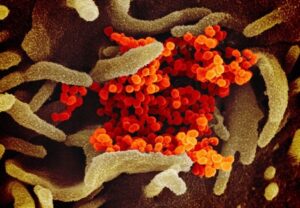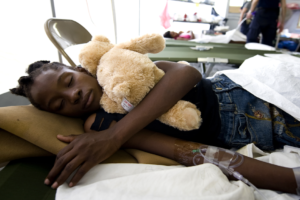
Source: Pixabay
Sleep plays an extremely important role in physical and mental health. In terms of physical health, the body repairs its heart and blood vessels during sleep. Healthy sleeping patterns allow your body to maintain proper levels of ghrelin and leptin, both hormones that the body uses to control hunger and satiety. For children and young adults, sleeping promotes healthy growth and development. Chronic sleep deprivation has also been shown to increase the risk for developing several diseases, including heart disease, obesity, kidney disease, hypertension, and diabetes.1 On the other hand, sleep also has a complex relationship with mental health. Because sleep is so critical in proper hormone production and dispersion throughout the body, people who don’t sleep enough can have hormonal imbalances that result in lack of emotional control. For example, sleep throws off the body’s ghrelin and leptin levels, resulting not only in odd hunger and satiety levels but also in anger, sadness, and general poor mood. Sleep also allows the body to process the emotional events of the previous day, giving people more control over their emotions.2
The connections between emotional control, mood, and sleep are the subject of ongoing study by researchers around the world in several disciplines. Recently, researchers from the University of British Columbia, located in Vancouver, Canada, found that people who sleep enough react better to both positive and negative events that they face in day-to-day life. To conduct this research, the team did a time-use study, where they used almost 2000 Americans’ daily diary data; these Americans were asked by interviewers to discuss their daily activities for one entire day, reporting specifically on their sleep and their experiences after they woke up. By studying the survey data, the team, led by University of British Columbia’s Assistant Professor of Psychology Nancy Sin, found that when people slept less than usual, they responded to stressful events with a stronger loss in positive emotions. Additionally, when going through positive events, their mood was not boosted as much as it would have been normally. In essence, lack of sleep makes negative events more impactful and positive events less impactful.3
These findings have significant implications for the future of research in sleep and its relationships with mental health disorders and chronic health conditions. Sin commented that the team’s study adds to the growing body of evidence that sleep is critical for mental and physical health by “showing that even minor night-to-night fluctuations in sleep duration can effect how people respond to events in their daily lives.”4 Overall, the importance of sleep cannot be overemphasized; hopefully, armed with these findings, the general public can work towards a better quality of life by sleeping more.
References
Sleep Deprivation and Deficiency (n.d.). National Heart, Lung, and Blood Institute. Retrieved September 17, 2020 from https://www.nhlbi.nih.gov/health-topics/sleep-deprivation-and-deficiency#:~:text=Sleep%20plays%20an%20important%20role,pressure%2C%20diabetes%2C%20and%20stroke.
Sleep and Mental Health: Why Our Brains Need Sleep (2020, May). Primary Care Collaborative. Retrieved September 17, 2020 from https://www.pcpcc.org/resource/sleep-and-mental-health-why-our-brains-need-sleep
Sin, N. L., Wen, J. H., Klaiber, P., Buxton, O. M., & Almeida, D. M. (2020). Sleep duration and affective reactivity to stressors and positive events in daily life. Health Psychology. https://doi.org/10.1037/hea0001033
University of British Columbia. (2020, September 15). People react better to both negative and positive events with more sleep. ScienceDaily. Retrieved September 17, 2020 from www.sciencedaily.com/releases/2020/09/200915121310.htm
Related Posts
Why Future A.I Robots Should Be Created With Immutable Code Limiting Singularity
Figure: Sophia, the first robot citizen in the Global A.I...
Read MoreThe “Old Friends” Hypothesis and the COVID-19 Pandemic
Authors: Sakeena Badrane1, Vivek Babu2, Sanah Handu1 1University of Pittsburgh,...
Read MoreThe Positives of Plushies: Stuffed Animals Have Benefits for Children and Adults
Figure: A young girl sleeps with a teddy bear in...
Read MoreAnahita Kodali



